Mario: Hello everyone, this week I decided to drop Appare Ranman. It did have what I consider its best episode (episode 7) a few weeks back, but I feel no desire to watch any more of the race so I figure it’s best to leave the show on the high note. Wooper is not joining us today, and that means that this week’s content will be mostly overlooked classic stuff – but to my delight they – the classic ones – all deliver (Well, Japan Sinks still sinks deeply). Let’s break it all down:
Japan Sinks – 07
Mario: It’s another uneven episode of Japan Sinks. It raises some interesting issues, naming how the Japanese authority deals with the situation. Saving people based on their national ID in the manner of lottery calls is intriguing, and Japan Sinks isn’t shy about showing the mixed effects of that implication to the citizens. But then along the way we get an unconvincing story of Ayumu refusing to board that ship (hey, her leg’s wound!! Anyone?), of Onodera again using his Morse code to save the day (but his backstory is never quite clear – was he a hostage back in Shan city? Does anyone in that city know about him being Onodera?). Everything happens with the extremist group and the ship of the old man just happens too quickly like a fever dream. And like a fever dream, we’re there to experience and not trying to look any deeper because the whole thing can (literally) fall apart just as quickly.
Aoi Hana – 06/07
Mario: It’s the conclusion of the play and the episode consists of Sugimoto introducing Fumi to her family. It might be two very different episodes, but group it together as we, the viewers, can see another soft and spoiled side of Sugimoto, in which once again the show does it magnificently. When the sisters and mother of Sugimoto enter that room, it strikes me hard that Aoi Hana is at heart a love story about girls/ women written by a woman with an almost-entirely female cast. And within these few scenes all the personalities of the sisters and Mom are clearly defined. It might be extreme but for me you can’t find a more authentic feminine voice than this.
And how Aoi Hana focuses on Sugimoto’s immature, vulnerable side in these two episodes is masterclass. First we see her perfect, carefree facade breaking down when the teacher (her previous crush) compliments her for the play. And then on the next date where she brings Fumi to her home to announce their relationship to her family. That’s a bold (and encouraging) move, but her sisters throw her off immediately. That might be harsh from the sisters, but then again they know how to tick her little sister off and just makes Sugimoto realize how childish she is. There’s a lot going on here. Sugimoto brings Fumi home to announce their relationship and ends up breaking up with her – but in Aoi Hana fashion everything proceeds quietly and soberly.
And I just love the motifs of Aoi Hana’s characters stroking their (or other’s) hair. It feels as if they express their inner feelings through those gestures.
Magical Shopping Arcade Abenobashi – 06/07
Mario: With parts of episode 6 and the flashback of episode 7, the plot makes much much more sense now. Abenobashi provides another layer of depth and informs many previously thought as random details: why they keep transferring in random worlds, for example, and who that architecture is, and why that big-boob girl keeps chasing him… and I think the show performs much better when it focuses on the original shopping arcade and not on random misadventures / parodies of the week of the kids. I always find the settings of worn-down shopping arcade at the end of its life pretty intriguing, especially how it can evoke the nostalgic feeling of lost eras, of things/ relics from the past (the ED evokes that mood very well), and for me that part is the heart of this show. The parody side I just pretty much take it or leave it.
Shounen Onmyouji – 04-06
Mario: There’s something about this old setting that I capture my interest. The monsters, for example, are not your typical loud “anime monsters” but they are truly evil spirits with dark powers and that makes all the battles against them thrilling and grab my attention. Masahiro still shows side of inexperience as he just charges into the devil’s nest without any backup plan, and he spends his power too quickly. He’s lucky this time as there are other guardians helping him, but he needs to learn that lesson. We see more about Guren situation, how he is despised by other shikigami, and how he was attracted to Masahiro in the first place (but seriously, I have a hard time seeing him as “the most scary spirit” – he doesn’t look one bit intimating). It’s a solid arc so far and I look forward for more coming.

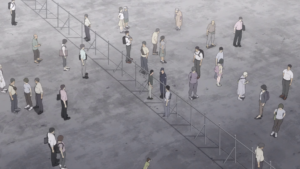
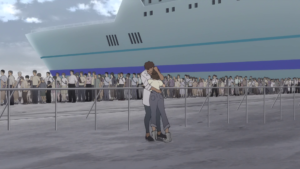
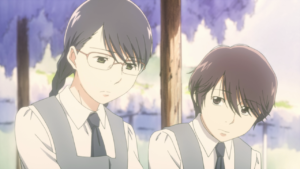
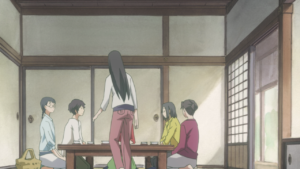
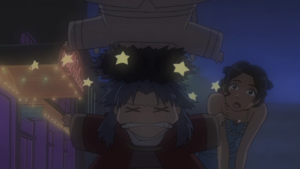
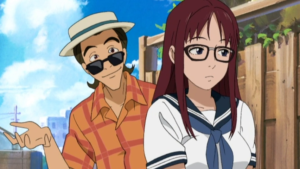
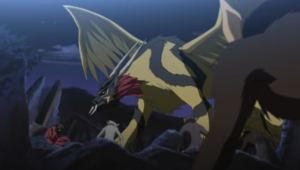

Don’t worry, your concerns about Masahiro charging into situations without a plan do get addressed later in the series. I don’t remember which episode right off, as it’s been a while since I’ve seen it, but it happens.
This episode of Japan Sinks is what I feel should never happen in a disaster film: you shouldn’t root for the deaths of bad people. All of the major deaths depicted are of people that the show frames as people that deserve to die as seen here and in the last episode with the death of the cult members. I get the social commentary as intention, but I just can’t buy this contrived storytelling.
Also, regarding Appare-Ranman since you dropped it Mario, you were missing out on arguably an episode just as good as episode 7, involving a Western-style standoff featuring Kosame fighting off a pack of gunslingers. Next episode is comedic vignette filler though, but at least the second half of this show is better than the first half.